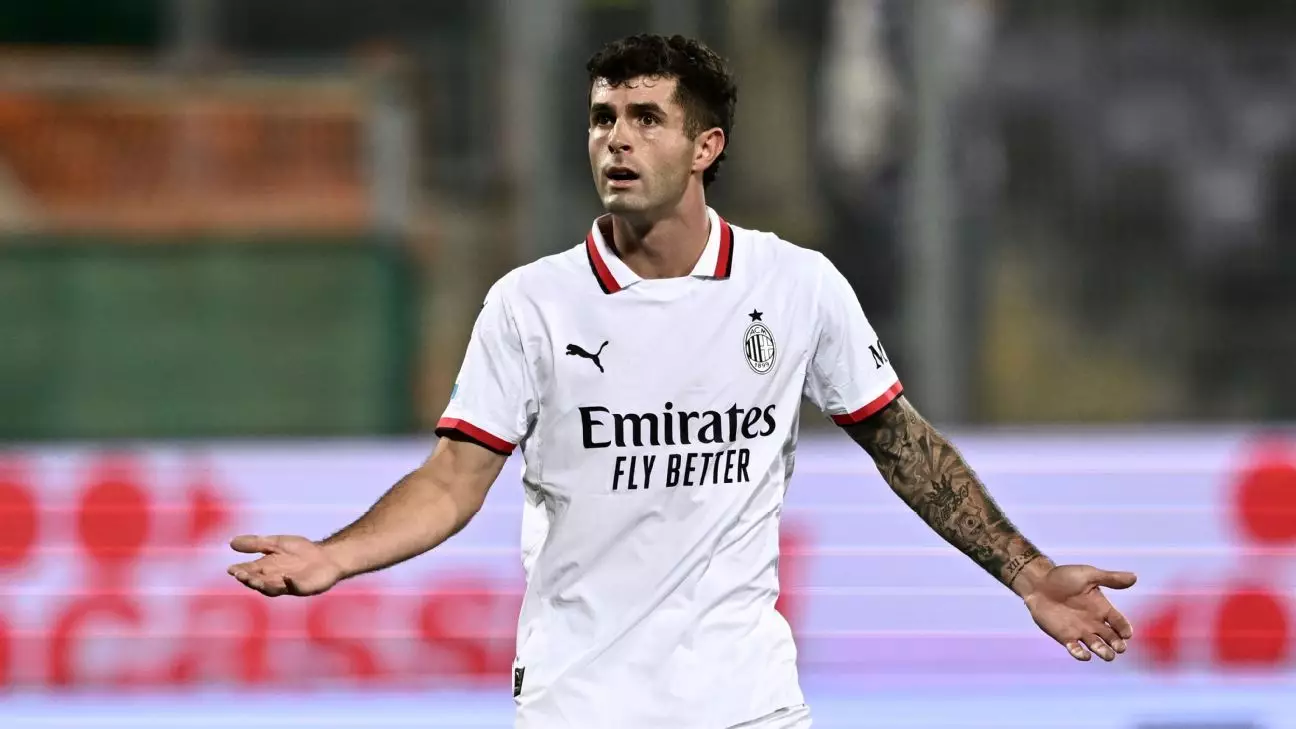The recent match between AC Milan and Fiorentina, which concluded with a 2-1 defeat for the Rossoneri, has left both coaches and fans questioning the decision-making of the players on the pitch. Paulo Fonseca, the coach of AC Milan, publicly expressed his bewilderment after two penalty opportunities were squandered, particularly given that Christian Pulisic, the team’s designated penalty taker, did not step up to take either kick. Instead, players Theo Hernández and Tammy Abraham took the responsibility, only to see both attempts thwarted by Fiorentina’s new goalkeeper, David de Gea. This unexpected turn of events raised eyebrows, as it appeared to contradict the established order within the team.
The choice not to allow Pulisic to take the penalties can be interpreted in various ways. While Fonseca acknowledged that he had spoken to his players about the incident and expressed his displeasure, the underlying issue points to a potential breakdown in communication or trust among teammates. With Pulisic in good form, having scored his sixth goal of the season, the rationale behind sidelining him in such crucial moments is baffling. This decision might suggest a lack of confidence in the designated penalty taker or, alternatively, a belief among the players that they could perform better in high-pressure situations, which ultimately backfired.
Adding to the drama of the match, Fonseca also criticized the officiating, highlighting a total of three penalties awarded during the game. His remarks hint at a broader concern about the interpretation of fouls in modern football, where contact is often scrutinized with less leniency. The frustration was palpable as he argued that football should not resemble a circus, indicating the coach’s desire for a game governed by traditional standards of contact and physicality. His comments suggest that such officiating can significantly influence match outcomes, particularly during high-stakes encounters like those between top Serie A teams.
Despite the contentious circumstances, Fonseca refused to make excuses for his team’s performance. Acknowledging the missed penalties and a defensive lapse leading to the losing goal, he recognized that these key moments crucially impacted the result. The defeat not only halted AC Milan’s three-match winning streak but also positioned them sixth in the league, trailing five points behind leaders Napoli. The match’s outcome serves as a wake-up call for the squad as they navigate through a demanding Serie A season filled with competitive fixtures.
The events in Florence illustrate the delicate balance of teamwork, strategy, and officiating that defines football. For AC Milan and Paolo Fonseca, addressing these challenges and reinforcing the importance of cohesive decision-making will be vital as they aim to regain their footing in the league. As the team heads into the international break, there remain pressing questions about their mental fortitude and capacity to convert opportunities into results on the pitch.

Leave a Reply